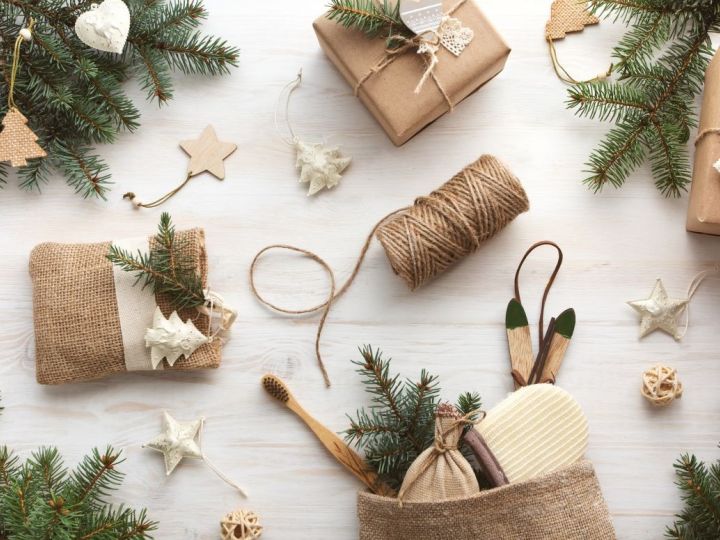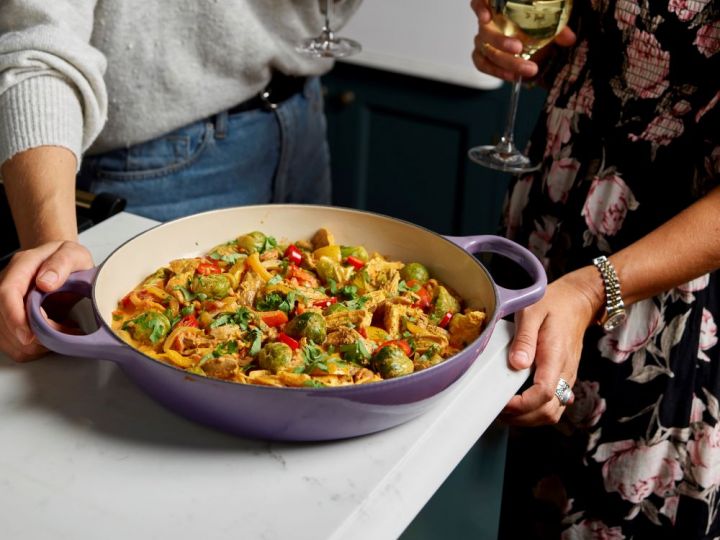The Impact of Christmas on Our Planet:
It is easy to get wrapped up in the consumerism of Christmas, but for those who take a mindful and ethical approach to their everyday life, the indulgence of the holiday season can leave a bad taste in the mouth. The wasted food, un-recyclable wrapping paper, plastic tat that no-one really wants or needs… it is estimated that the carbon impact of Christmas Eve, Christmas and Boxing Day account for 5.5% of the UK’s total annual carbon footprint.
We believe that having an indulgent and special Christmas doesn’t mean you can’t have an ethical and sustainable one too.
Here are our top tips for navigating the period of peak consumption -
Shop Small - Support Your Local, Independent Businesses
When you buy from a small business you help to boost a sustainable local economy. You are much more likely to impact individuals who are thrilled with every sale, putting money in the pockets of real families rather than big corporations with long supply chains. There are so many incredible ethical and sustainable brands to choose from, and chances are the gifts you find will be more unique and special. Check out the Live Frankly directory as a brilliant one stop shop for brands doing the right thing.
Shop for Gifts That Will Last
Choosing good quality gifts means they won’t end up in landfill in a month or year’s time. From meaningful jewellery to personalised photo mugs, prioritise quality over quantity. Presents also don’t have to be ‘things’. Gifting experiences are a great way to create memories and lessen your impact on the environment - you could offer to take a relative for a special cinema trip or promise a small person in your life a fun day out at the park. For a truly unique gift, homemade gifts can be amazingly sustainable. From foodie gifts like cakes, chutney or sloe gin… to artwork or embroidery, crafting your own presents could save you money and will delight the person you give them to.
Re-use Wrapping Paper & Cards
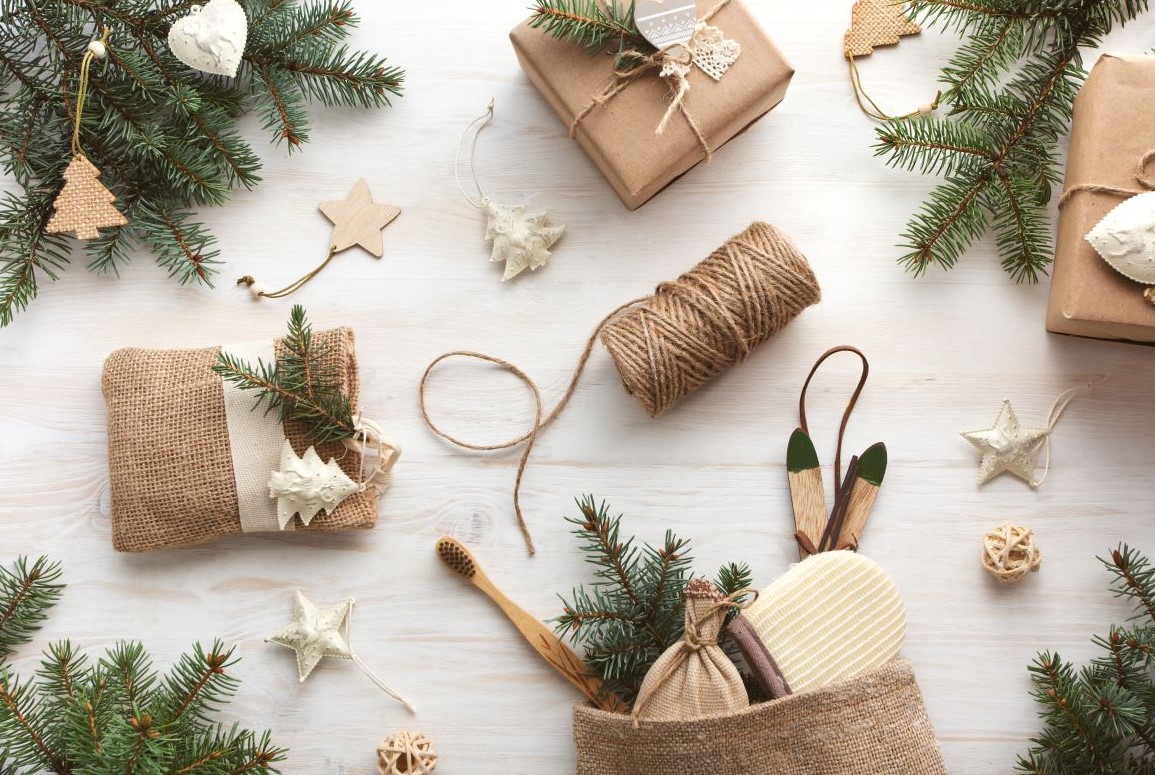
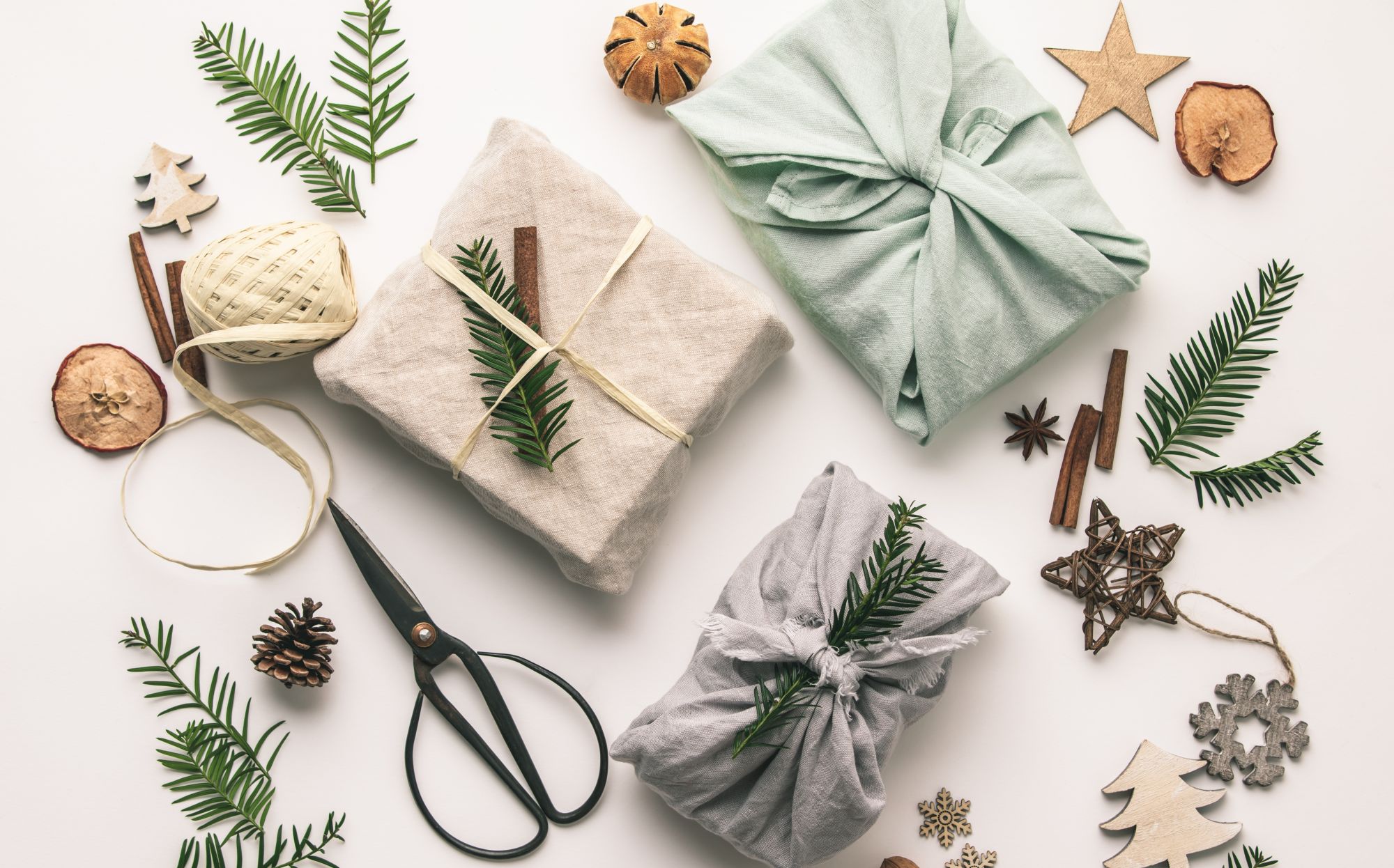
During the Christmas season, the amount of wrapping paper thrown away, if laid end to end would equal 384,400 kilometres or 238,855 miles. Additionally, lots of modern wrapping papers contain plastic in the form of glitter or metallic foils which cannot be recycled. Our top tips are to save paper from gifts you receive so you can give it another lease of life. Securing your presents with string instead of tape means they are much easier to use again and again. Another great option is to use material which you can pick up cheaply in a charity shop or second hand on sites like ebay.
It is estimated that 30,000 tons of Christmas cards are thrown away each year. Re-using Christmas cards as gift tags is a great way to upcycle them and add a unique twist to your wrapping.
Make Your Own Bio-Degradable Decorations
Tinsel and foil decorations are frankly an environmental nightmare. Go green this Christmas with foraged foliage to craft a mantelpiece display, wreath for your door or an exciting tablescape. We’ve teamed up with the amazing Emma at Wilde Green to show you how you can make your own wreath from 100% biodegradable materials. You can watch our video on our Instagram here or follow the steps in our article here.
Plan For Food Waste
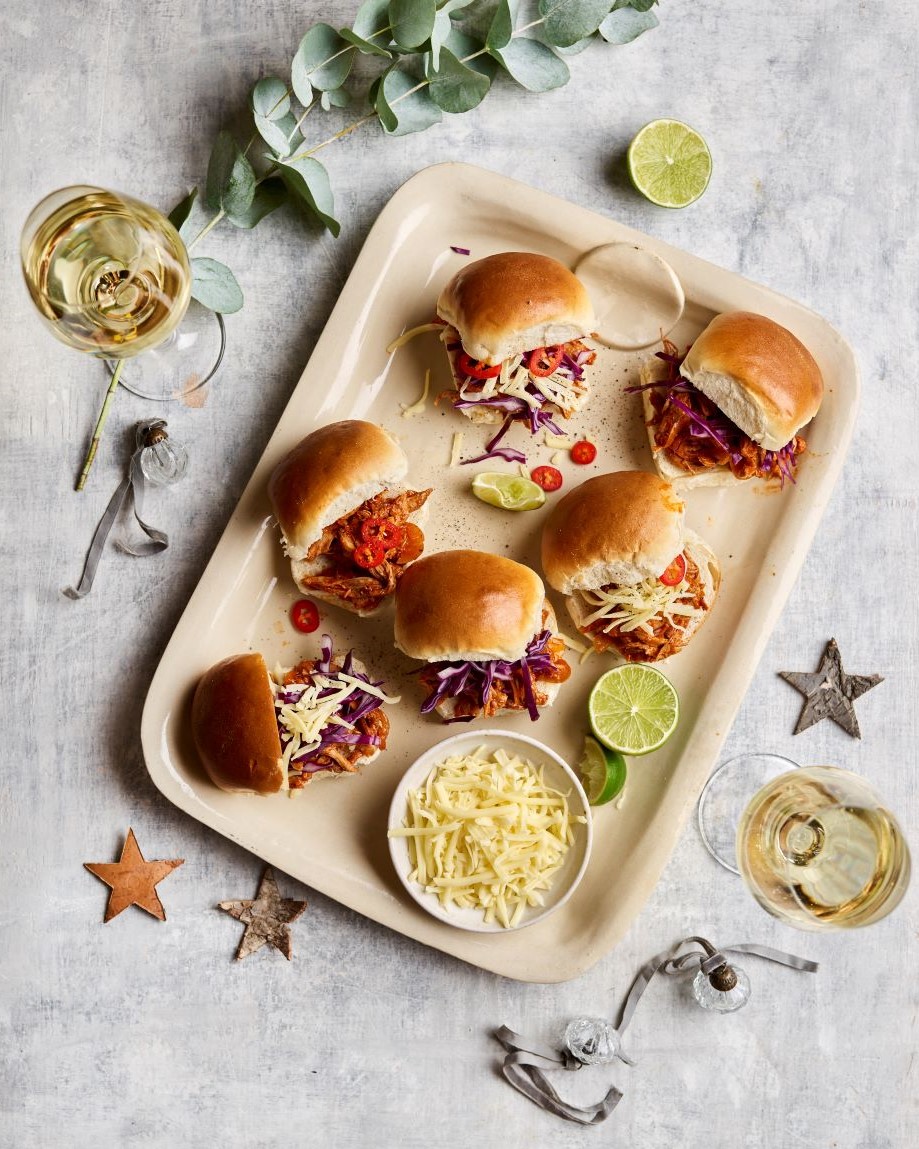
.jpg)
A staggering 7 million tonnes of food ends up in the bin each Christmas in the UK. Not only does this statistic mean people are throwing money down the drain, it also has an incredibly harmful impact on the environment. Wasting food is feeding climate change because we are wasting not only the food but the valuable resources that have gone into creating it too - from the land, fertilisers and water that was used for growing it to the greenhouse gases created from its production and transportation.
So, after the Big Day has come and gone, what can you do with all those (still incredibly tasty) leftovers? Our top tip is to love your leftovers. As long as you are careful about how you store surplus food, it is perfectly safe to freeze, reheat and enjoy. Your freezer is truly your best friend when it comes to waste!
Alternatively, we have a selection of delicious recipes that have been specially created with Christmas leftovers in mind. See here for inspiration.
Shop Organic
Whether it’s a turkey with all the trimmings, indulgent skincare or new clothing, choose organic this Christmas. Whatever you decide to serve or gift your friends and family, you can be sure that all organic products has been grown with care and passion, with complete traceability from field to fork.
We often think that organic only applies to food, but there is a growing market for organic skincare, and also wool and cotton. When produced in a way that works with nature, these are two of the most sustainable materials you can buy.
Organic cotton farmers use natural methods to build healthy soils, save water and combat climate change, and when you see the Soil Association or Global Organic Textile Standard (GOTS) logo, you can be sure the clothes you're buying are better for the planet, and the people who make them too.
Organic food, clothing and beauty products are produced in a farming system that is better for the environment, farm animals, people and our planet.


